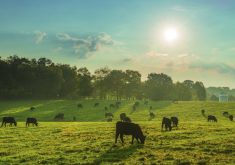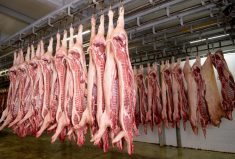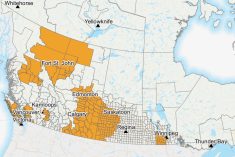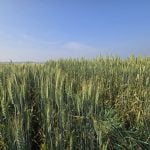In a news release distributed today linked to Budget 2017, Agriculture and Agri-Food Minister Lawrence MacAulay announced tax relief to help farmers who received compensation under the Health of Animals Act from livestock destroyed due to the bovine tuberculosis outbreak in 2016 and 2017 in Alberta and Saskatchewan.
The federal government also released its 2017 list of designated regions for livestock tax deferral in British Columbia, Alberta, Saskatchewan and Quebec affected by drought, flood or excess moisture.
Read Also

Mexico agriculture secretary says still no date for restarting cattle exports to U.S.
Mexican Agriculture Minister Julio Berdegue said on Wednesday that Mexico and the United States have not yet set a date to resume Mexican cattle exports amid an outbreak of the flesh-eating screwworm parasite.
These livestock tax deferral provisions allow livestock producers in prescribed drought, flood or excess moisture regions to defer a portion of their 2017 sale proceeds of breeding livestock until 2018 to help replenish the herd. The cost of replacing the animals in 2018 will offset the deferred income, thereby reducing the tax burden associated with the original sale.
Eligibility for the tax deferral is limited to those producers located inside the designated prescribed areas. Producers can request the tax deferral when filing their 2017 income tax returns.
Current tax treatment maintained for deferred cash purchase tickets
Todays also indicated the path the federal government plans to take on deferred cash purchase tickets.
As part of Budget 2017, the federal government stated it has carefully considered submissions received during its consultation process, and will maintain the current tax treatment of deferred cash purchase tickets, “if a cash purchase ticket in respect of a delivery of a listed grain is payable in the year following the year in which the grain is delivered, the taxpayer will continue to include the amount of the ticket in income for that following year.”












